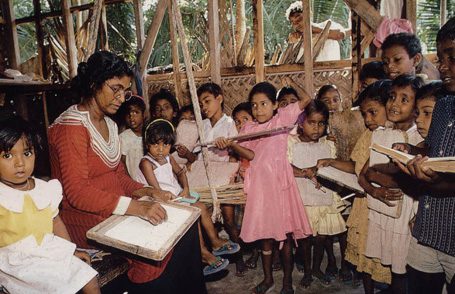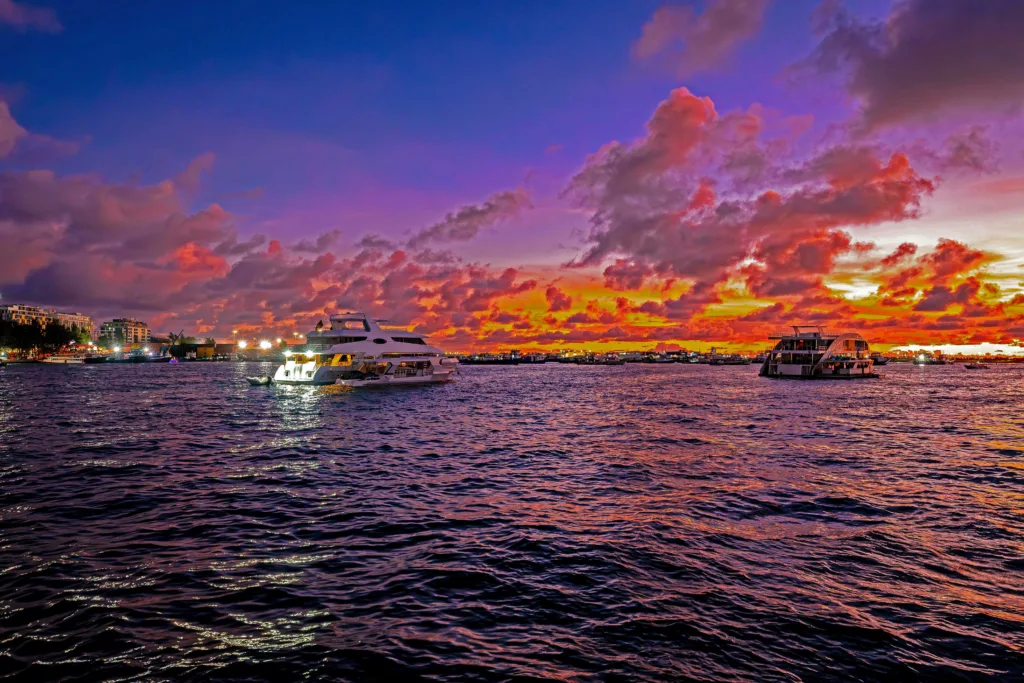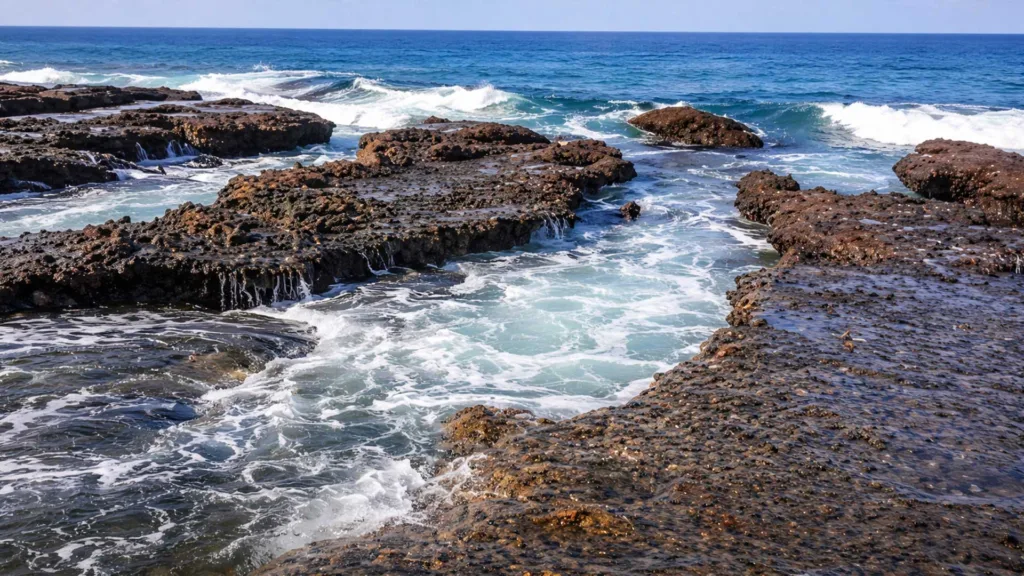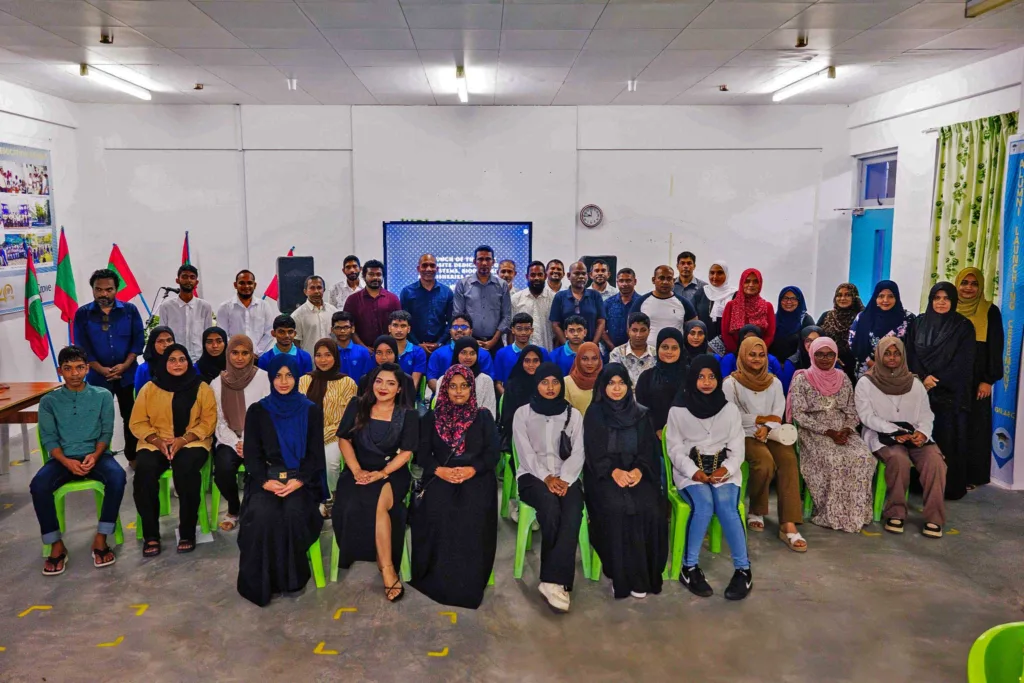
About 30 years ago, every morning I went to a household named ‘mathegeragando’ in my ward to learn Islam’s holy scripture Quran. Children of my age group gather at the house where “Dhatha” (literally meaning ‘sister’) taught us how to read and learn Quran. We all sat on a cement platform called ‘dhaala gando’ built within the household next to the yam fields.
Dhatha taught us verses of Quran and then we read and learned by ourselves. She also conducted lessons on how to read basic Arabic. This was performed by writing letters on a wooden board that contained white sand. She wrote letters using ekel (iloshi). As she writes the Arabic letters by engraving in the white sand on the board, we read it aloud. Prior to the advent of modern-day pre-schools, the traditional edhuruge, a gathering of children in a private home to learn to read and write Dhivehi and Arabic, prevailed across the islands. The house provided education by respected members in the community. It was freely provided. But a symbolic small fee is charged. People who are unable to pay had no records of debts. Children who attended the sessions are of the age range between 3 and 15 years. We also assisted each other. Older children assisted the younger. Each child is assigned work according to his/her own ability. Edhuruge helped us read the Holy Quran properly and to develop a love for the Quran and the Islamic religion. The teaching of literacy and numeracy skills is also an important component of the edhuruge.



